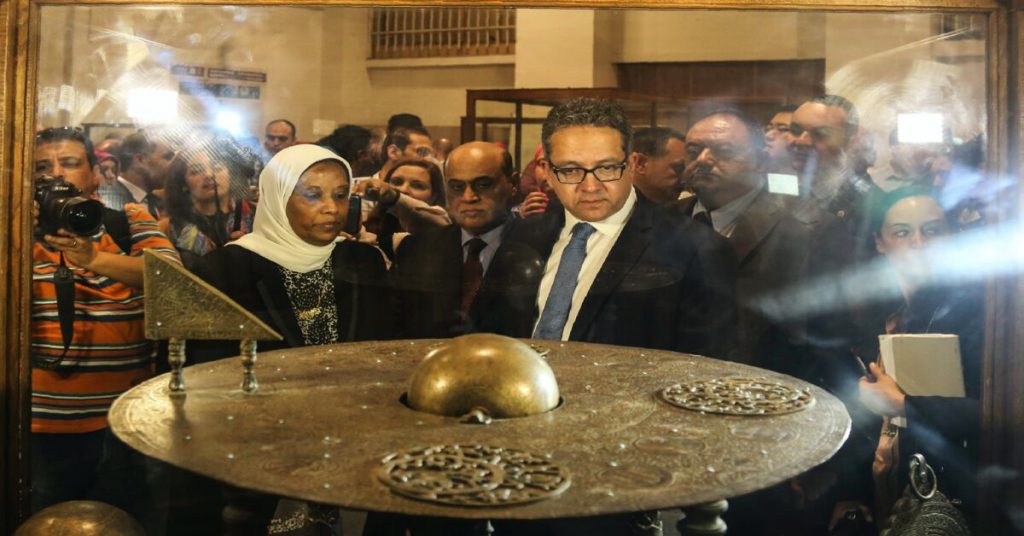Several Egyptian businessmen were arrested in the frame of a police operation aimed at repatriation of the dozens of artefacts. “The Great Antiquity Smuggling Case” becomes the latest incident of the large numbers of antiquities stolen and smuggled abroad.
In June, the Egyptian police made a series of arrests of businessmen involved in the smuggling of artefacts and illegal possession of several antiquity pieces. But the prosecution’s official investigations have not yet announced a connection between the associates, the smuggling of antiquities abroad and those that were officially recovered from Paris.
Dismantling the major smuggling networks would dry up the huge source of funding for this illegal trade and deter smaller smuggling groups.
According to the United Nations cultural body, UNESCO, artefact trafficking was the third-largest illicit trade after drugs and weapons. Annually, such a black market’s worths about $10 billion.
In May 2019, some regional and international media outlets reported the Islamic State had made more than $100 million from selling antiquities from Syria and Iraq in several countries, using these funds to fund arms and recruits.
Egypt should strengthen laws criminalizing the illegal antiquity trade

So far, the main challenge is the absence of laws criminalizing the illegal antiquity trade in Egypt. The MPs should approve a law requesting countries to return stolen Egyptian artefacts when they enter their territories, except for the pieces that are discovered and registered in museums and stores. This activity is covered by the respective 1970 UNESCO Convention.
For UNESCO, it is important to support the Egyptian authorities, for an instance, to adopt an international law obligating countries to return smuggled antiquities to their home countries. In October 2019, the UNESCO Executive Council passed an Egyptian initiative to combat illicit artefact trade but it did not lead to any official and legally binding agreement at the international level.
